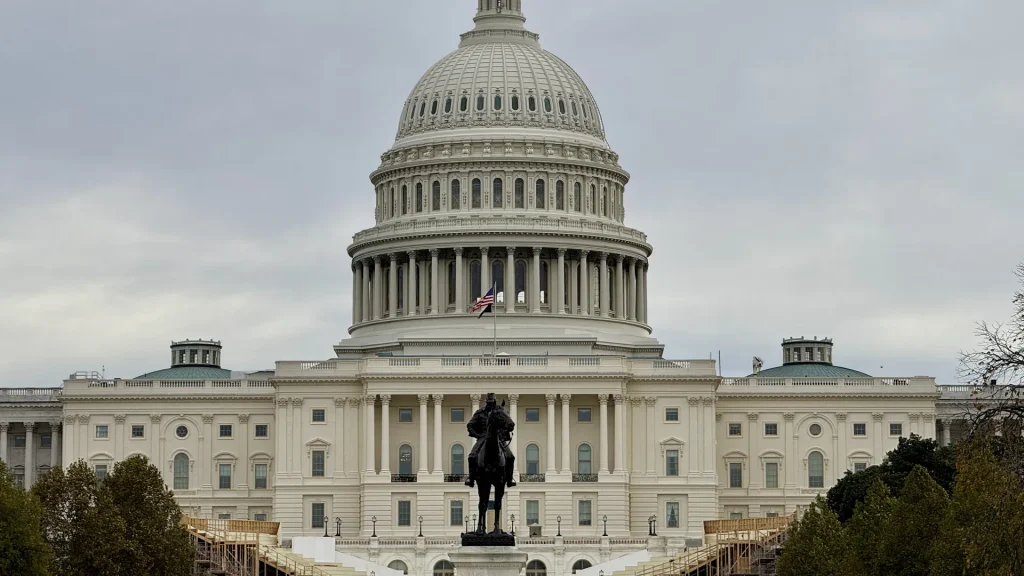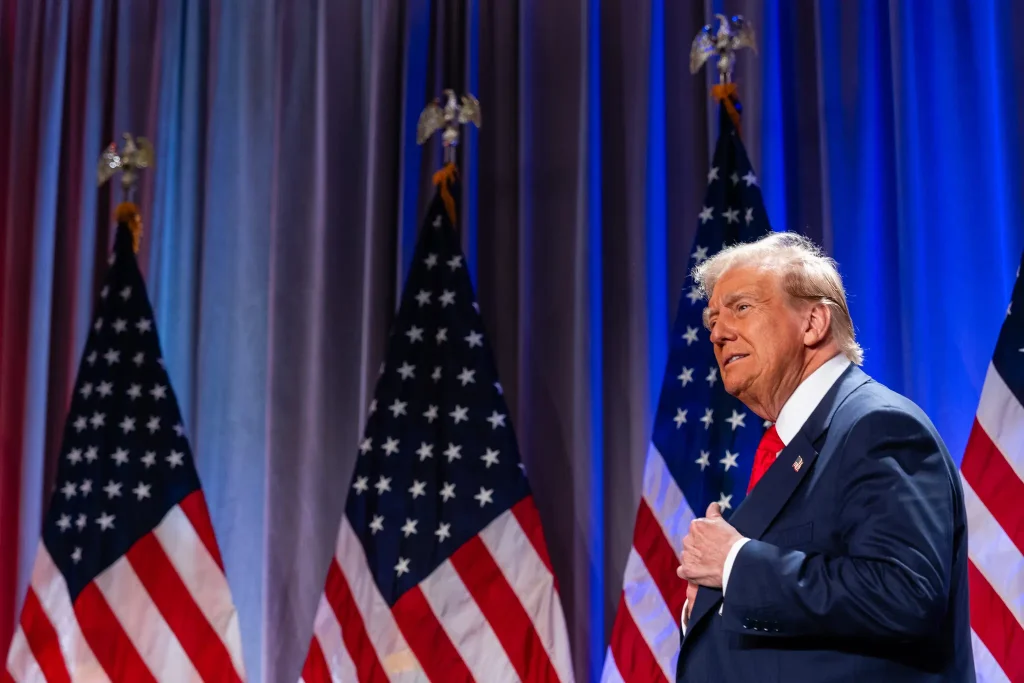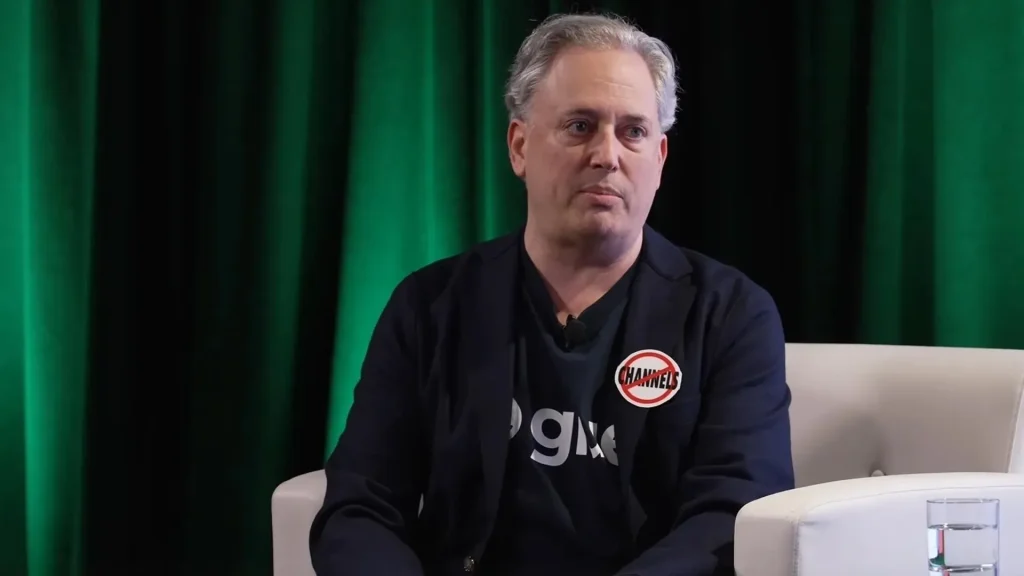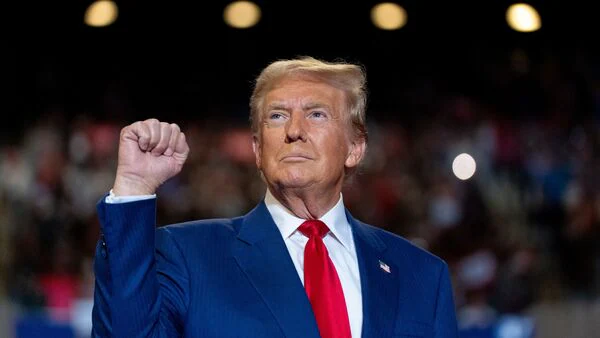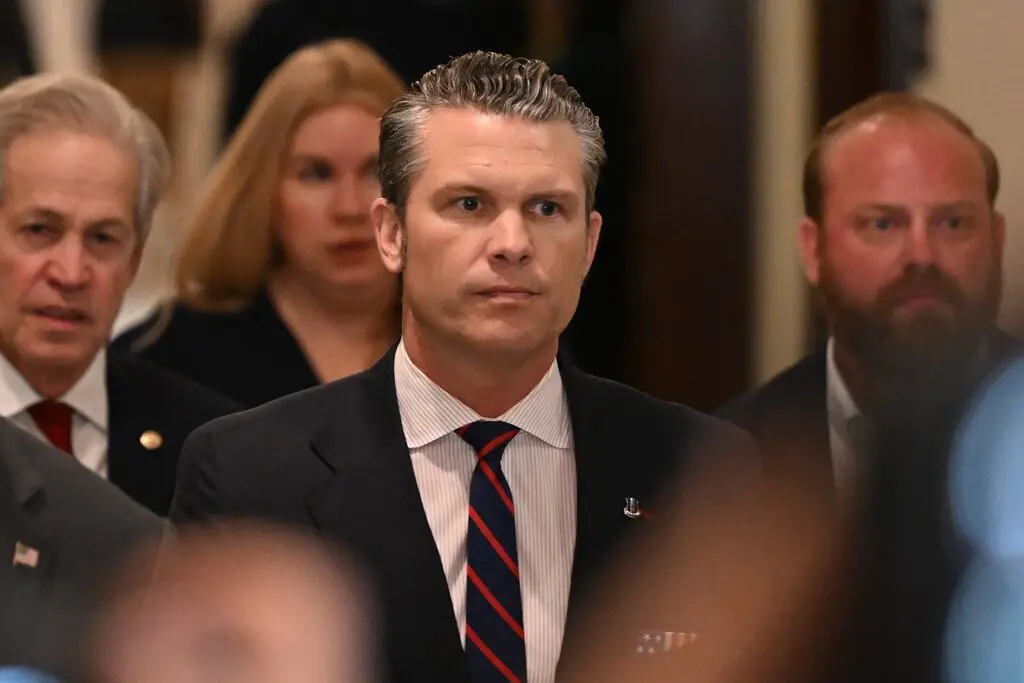Trump Taps North Dakota Governor Doug Burgum for Interior Secretary
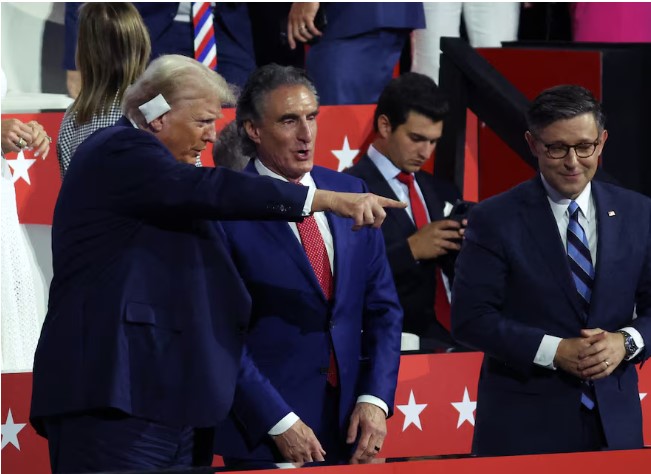
President-elect Donald Trump has announced that North Dakota Governor Doug Burgum will be nominated as his Secretary of the Interior for his second term. The move, made public on Thursday, is part of a broader effort by Trump to fill key positions in his incoming administration as he prepares to take office in January.
Burgum, a Republican and former tech entrepreneur, has served as the governor of North Dakota since 2016, building a reputation as a fiscal conservative with a focus on economic development and government reform. His selection is seen as a strategic pick, given his deep ties to the energy sector, which plays a critical role in the economy of his home state, and his leadership on issues related to land management and infrastructure development.
Burgum’s Background and Alignment with Trump’s Agenda
Burgum’s appointment to lead the Department of the Interior (DOI) signals Trump’s intent to prioritize energy development and land-use policies, particularly those related to oil, natural gas, and public lands. The DOI oversees national parks, federal lands, wildlife refuges, and the Bureau of Indian Affairs, but its role in regulating energy development on public lands has made it a focal point for conservatives like Trump who advocate for expanding domestic fossil fuel production.
During his tenure as governor, Burgum has been a strong proponent of North Dakota’s energy industry, particularly in advocating for the state’s oil-rich Bakken shale formation. His leadership in fostering an environment for oil production and pipeline development aligns with Trump’s pro-energy policies, which aim to reduce reliance on foreign oil and promote energy independence. Burgum has also supported efforts to ease federal regulations on drilling and expand energy infrastructure, a stance that is expected to complement Trump’s broader push to deregulate environmental protections and encourage economic growth in the energy sector.
Burgum, 67, brings a background in business as well as politics to the table. Before entering public service, he founded and led a successful software company, Great Plains Software, which was later acquired by Microsoft. His experience in both the private sector and as a governor gives him a unique perspective on government efficiency and economic policy. He has used his platform as governor to push for greater transparency in state government and to streamline bureaucratic processes, a focus that will likely influence his approach at the Department of the Interior.
Key Challenges and Responsibilities at the Interior Department
As Secretary of the Interior, Burgum will face significant challenges in balancing economic development with environmental stewardship. The department is responsible for managing vast areas of public land, including national parks, forests, and monuments, and is also tasked with overseeing the federal government’s relationship with Native American tribes.
Burgum’s pro-energy stance could influence how the Interior Department approaches federal land use, particularly in terms of oil and gas exploration. Trump has made clear his commitment to expanding drilling on public lands, a policy that has generated significant opposition from environmental groups. The choice of Burgum suggests that Trump will continue his administration’s efforts to open up more public lands to resource extraction, while reducing restrictions that have been placed on energy development under previous administrations.
Burgum will also inherit the complexities of managing public lands in a way that balances the interests of conservationists, industry stakeholders, and local communities. His leadership will be scrutinized by environmental groups, who will likely push back against any efforts to roll back protections for federal lands or expand oil drilling in sensitive ecosystems. At the same time, Burgum’s experience in North Dakota, where oil production has been a central economic driver, may help him navigate the intricacies of balancing land-use policies with economic growth objectives.
Political Reaction and Implications
Burgum’s selection is expected to face minimal opposition from Senate Republicans, who are likely to support the pick due to his alignment with Trump’s energy and economic agenda. However, Democrats and environmental activists are expected to raise concerns, especially regarding his stance on climate change and the potential expansion of fossil fuel extraction on public lands.
As part of Trump’s broader efforts to reshape the federal government, Burgum’s appointment reflects the administration’s focus on deregulation and promoting American energy independence. Trump has previously made clear his preference for appointing individuals with business backgrounds who can implement his vision of reducing government interference in the marketplace.
Burgum’s confirmation will likely be part of a larger series of Cabinet appointments in the coming weeks, as Trump fills out his team ahead of his second term. His leadership at the Department of the Interior could have long-term consequences for the future of U.S. environmental policy, energy development, and land conservation, with critics and supporters alike watching closely to see how he balances economic and environmental priorities.
If confirmed, Burgum will face a busy agenda in his new role, from overseeing federal land management policies to navigating the complex dynamics between industry, conservation, and tribal affairs. His nomination is expected to set the tone for the administration’s approach to public lands and energy policy in the years to come, with implications for both the environment and the economy.
Burgum’s selection also signals Trump’s commitment to continuing his “America First” agenda, which emphasizes energy independence, deregulation, and economic growth through resource development. The North Dakota governor’s background in both business and state government will likely make him a central figure in shaping the administration’s energy and environmental policies as the country moves into a new political era.


